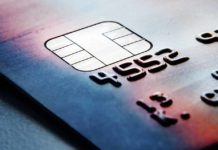
I’m not going to lie, it’s not easy for a lot of people to save money these days. In fact, some experts are saying that this is the most difficult time in recent history for people to stay on budget and reduce expenditure! But don’t let yourself get discouraged- there are still ways you can make small changes and start saving more than you ever thought possible.
Here are 5 things I’ve done personally that have helped me start saving and getting ahead on my finances:
1) Pay your bills with cash or prepaid cards instead of using credit cards.
2) Negotiate with your bank about lowering the interest rates on loans
3) When shopping for groceries use coupons or buy discounted items when they’re available
Let’s start with one of the easiest things you can do to help yourself out. Paying your bills with cash or prepaid cards instead of credit cards is simple-just pay them off in full every month! It’s an easy concept, but one that a lot of people don’t follow through with. If you’re one of these people, now is the time to make a change!
Get yourself a nice folder or envelope and write down everything you need to pay each month. As soon as you get your paycheck (or whatever the payment is that you receive from your work) go ahead and write them down on your bill list in order of importance. Then, every single time you get paid, go ahead, and pay the bill. This is going to give you a good idea of how much money comes in each month and it will help keep you from spending more than you have!
Prepaid credit cards are a great alternative to relying on your bank’s overdraft policy. They work just like credit cards except they are prepaid, so if you spend more money than what’s in your account the payment won’t go through. This is a great way to ensure that you will never reach your overdraft limit and end up having to pay extra fees for bouncing checks or other services. The downside with using these cards is that they don’t give you as good of a rewards program as credit cards, so you might want to use these in addition to a rewards card rather than relying on them as your sole source of funds.
I can’t tell you how many times I’ve seen people go out and get large amounts of groceries, then leave them to rot in their fridge or cupboards because they either don’t have time to eat all the food or bought things that they didn’t end up liking. This is just a waste of money! So now that you’re already cutting out the things you don’t really need and using coupons when shopping, try to look into buying discounted items or even having stuff delivered for a lower price. For example, if I see that there is a sale at my grocery store where I can get $10 off of an order of $50 or more, I’ll put together as much food as I can for a week and order it all at once.
This is much cheaper than buying things on my own over the course of the week because you’re saving money in gas and are also getting discounts by ordering everything together. You’ll probably want to go ahead and get things that don’t spoil fast (frozen foods) or that you can freeze (like bread or frozen veggies) so that it will last longer for you.
If you get any sort of credit, whether it’s a loan from the bank, getting approved for a credit card, or even buying something with cash and having the retailer run your card as part of a promotion-you should always call up the company and ask for a lower interest rate. I was able to get my bank to drop the interest rate on one of my loans from 19% down to 9% just by calling them up and asking for it! They’re always willing to do this, so you shouldn’t be scared to do it either.
It’s also a good idea to use coupons whenever you can. A lot of times, when someone goes out on their own and starts paying for things, they’re already going to spend money on anyway, it becomes really hard for them to save any kind of money. However, if you make sure that you’re only buying things when it’s cheaper to do so then you can save a ton of money and even cut back on your spending. Coupons bring that extra incentive to buy things you use anyway, and the best part is that they’re even available for online shopping sometimes. You’ll just have to look around when you go on Amazon or other websites to find what coupons are currently being offered.
One of the best things you can do is to go ahead and buy things at brick-and-mortar stores when they’re on sale. Oftentimes, it’s hard to find out about online sales or coupon codes before they expire! For example, if I want a new pair of boots for winter, I might wait until a certain store has them on sale, then buy them when they’re in-season so that I don’t have to wait for the season to be over before I can use a coupon code or get it at a lower cost. This is really helpful if you want to make sure you get something, but also want to save money while doing so.
This is a very casual term people use to describe the process in which you pay off your debt, then start putting away money into an account that will eventually end up being received as income. This method helps to ensure that you’re not only paying off all your loans or credit cards, but also saving for things like retirement and even emergencies that might occur in the future. It’s always a good idea to try and save some money; it doesn’t have to be much, but you should at least be able to put away $20 or $50 every month so that you’re not only paying off your debt and bills, but also saving up for something more concrete like retirement.
It’s pretty normal to feel like you have a lot of debt after starting college or moving out on your own, but you shouldn’t be too worried about it. Everyone must start somewhere and the process of paying off all that debt is something that very few people can do overnight. So, take it step by step, work hard, and make sure that you’re always coming up with ways to make more money and spend less. Think ahead, try to save a little bit each month, get the most out of your debts when they come around (like that credit card at 19% interest), and you’ll be thanking yourself in the future!
What is debt?
Debt is the responsibility to pay money owed on demand or by a certain date. People can create debt through borrowing money, which is called a debt instrument, or by obtaining goods that will be paid for later.
Debt can come in the forms of a loan, a mortgage, an overdraft, or credit card balance, or even by purchasing things on credit. The most common sources of debt are mortgages and consumer loans. When you take out loans for big-ticket items like cars or homes, you usually pay more than the item’s worth when it’s all said and done.
There are several different financial instruments that provide consumers with short-term financing, long-term loans, or a means of saving. If you’re responsible and use these instruments wisely, they can be very beneficial to your financial situation.
To help understand how debt works, it’s important to know what types of debt are out there. Knowing what these debts are and how they function will help you make better financial decisions in the future.
How to pay off debt?
One way to pay off debt is to make a conscious decision to do so. The first step is to estimate how much you owe. Try making a list and taking note of the names of your creditors, the balance you owe for each one, and the date the balances are due. When it comes time to stop borrowing, avoid high-interest loans such as payday loans. It’s also important to know up front what your monthly payments will look like and not just focus on the lump sum owed.
Avoiding high-interest rates can be difficult if that’s the only type of loan available. You could also try negotiating with banks or lenders about reducing the interest rate – in some cases significantly – if you keep up with repayments.
If you have consolidated loans, paying off the loan with a lower interest rate first can save you money over time.
For instance, if you consolidated multiple loans with a fixed interest rate of 5%, pay off the loan with the lowest balance first. Once that’s paid off, apply that payment to the next lowest balance until they’re all gone when you can then apply payments toward your principal for the remaining loan.
It’s also important to remember not using credit cards at all. If you can, cut them up and throw them away. Don’t even keep one as a backup in case your card is lost or stolen. By doing this you’ll be less tempted to use them for purchases that may derail your progress toward debt retirement.
How to save money and get ahead?
If you have any extra money at the end of each month after paying your debt and living expenses, contribute to your savings account. By saving when you can, it’ll help give you the ability to take advantage of opportunities that will be more likely to arise in the future.
Make sure your savings is protected by keeping the funds separate from any joint accounts or assets with other people. It might also be a good idea to open an account at a credit union or small bank so you don’t have a large amount of cash sitting around, which may tempt you to spend it.
Before making any big purchases that may require financing, decide how much you’ve saved and how much debt is left. If there’s still some money left over after both are paid then you can look into getting something new or paying for services such as health care out of pocket.
When you have debt, there’s usually two options: you cut back on your spending or increase your income. When it comes to deciding which route to go with, the most important thing is to be honest with yourself about what you want in life and what’s important to you.
Why should you start saving now, even if it’s a little bit at a time? A lot of people find that they never have time to put money away for savings. The next best thing is to save a little bit every time you can and see how a small amount builds up over time. For instance, if there’s any money left at the end of the month after paying bills and living expenses, put it in your bank account or even just cash (if you’re dealing with a lot of debt).
Eventually, you’ll find that even though it was just a little bit at a time, it’ll all add up. This is something I’ve learned from reading Dave Ramsey’s Financial Peace University. It teaches individuals how to make their own budget and stick to them in order to get out of debt.
The bottom line is, to get ahead financially, you’ll want to minimize interest payments and other financial obligations. While there are plenty of things that can change your situation, the most important thing to remember is not to use credit cards or finance charges you don’t have to pay.
The best thing to do is, cut up your credit cards and close excess accounts!
The importance of making sure that you’re not only paying off all your credit cards, but also saving for things like retirement and emergencies that might occur in the future.
How to save for things like retirement and emergencies:
To save for things like retirement and emergencies, it’s important that you pay off all your loans or credit cards while also saving a little bit each time. This will help ensure that you have enough money saved up for when something unplanned occurs.
To get started with the savings account, it’s vital that you keep the funds separate from any joint accounts or assets with other people. You’ll also want to open an account at a credit union or small bank, so you don’t have a large amount of cash sitting around easily accessible and tempting you to spend it.
When making any big purchases that may require financing, make sure not only that all your loans and credit cards are paid off before getting anything new, but also that you have a small amount of money saved up to pay for these necessities. Before purchasing anything new with borrowed funds make sure it’s something important and worth the extra monthly payment on your end.
When you’re making financial decisions it’s often easy to get caught up in things such as paying off student loans, buying a house, or getting married. You must remember that you don’t want to put your life on hold and miss out on things because of money problems. If there’s still some money left over after both are paid then you can investigate getting something new or paying for services such as health care out of pocket.
To be personally responsible for the financial decisions you’re making, it’s important that you do your own research and find out as much as possible about different products or services before taking out a loan or signing up for a certain account. Just because something sounds like a good idea doesn’t mean that it is. It’s also important that you keep the money in a separate account to avoid any issues with shared finances.
A lot of financial experts will tell you that one of the best things to do is talk about your budget and financial goals with your spouse or significant other. By communicating about money, it’ll help prevent disagreements down the road when someone spends too much or doesn’t have enough saved up for an important need. If you don’t talk to your partner about it and make a budget together, at least do both individually so that you’re on the same page with each other when it comes to money, and you understand their financial goals.
To save for things like retirement and emergencies, it’s important that you pay off all your loans or credit cards while also saving a little bit each time. This will help ensure that you have enough money saved up for when something unplanned occurs.
You need to be personally responsible for the financial decisions you’re making, it’s important that you do your own research and find out as much as possible about different products or services before taking out a loan or signing up for a certain account.
Just because something sounds like a good idea doesn’t mean that it is. It’s also important that you keep the money in separate accounts to avoid any issues with shared finances. A lot of financial experts will tell you one of the best things to do is talk about your budget and financial goals with your spouse or significant other. By communicating about money, it’ll help prevent disagreements down the road when someone spends too much or doesn’t have enough saved up for an important need. If you don’t talk to your partner about it and make a budget together, at least do both individually so that you’re on the same page with each other when it comes to money, and you understand their financial goals.
To save for things like retirement and emergencies, it’s important that you pay off all of your loans or credit cards while also saving a small amount each time. This will help ensure that you have enough money saved up for when something unplanned occurs.
When you’re making financial decisions it’s often easy to get caught up in things such as paying off student loans, buying a house, or getting married. You have to remember that you don’t want to put your life on hold and miss out on things because of money problems. If there’s still some money left over after both of those things are paid then you can look into getting something new or paying for services such as health care out of pocket.





